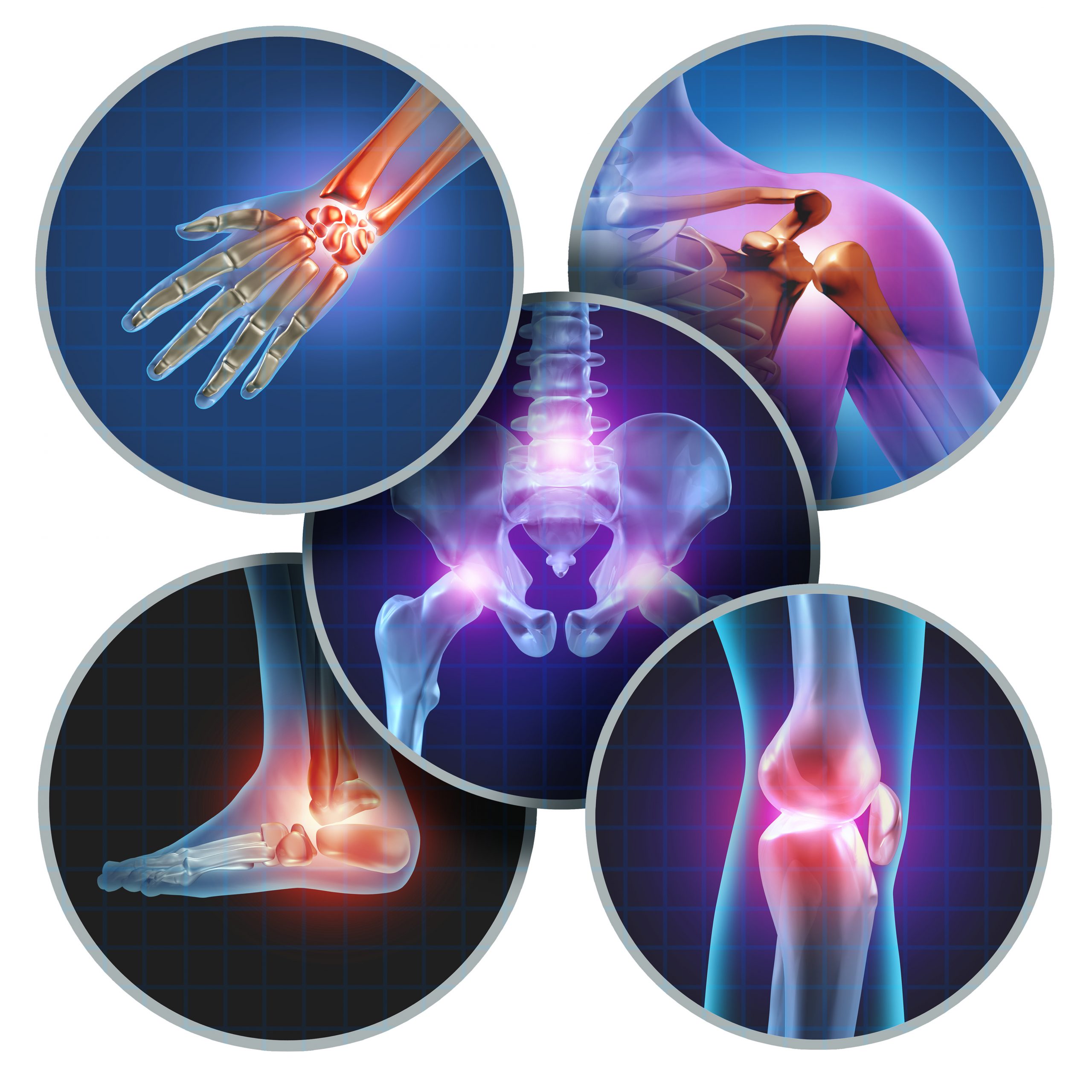WHAT WOULD YOU LIKE TO KNOW ABOUT LIVEAGIL JOINT ?
Collagen for Joint Pain
Do you experience a cracking and snapping when you move? The pain that accompanies this popping sensation could be a sign of arthritis. This painful joint disease occurs when the joint cartilage is damaged and no longer acts as a shock-absorbing cushion between the bones. The most commonly affected joints are your knees, hip, shoulders, spine, fingers, toes and ankles. Treating painful joints is not easy from a medical point of view, however, regular exercise can help ease pain while improving body strength. We will explain which kinds of exercise you should avoid and which ones are good for you below.
Great (and Safe) Workouts for Your Joints
Light and hydrostatic sports strengthen muscles surrounding joints while promoting the circulation of synovial fluids to help keep joints lubricated. Synovial fluid is a viscous, egg white-like fluid found in the cavities of mobility joints. Therefore, people with osteoarthritis should practice light sport or hydrostatic activity to avoid strain on their joints. Examples of hydrostatic activities are swimming and water aerobics and examples of light sport are hiking or cycling. There are many choices to make your daily exercise routine enjoyable and healthy for your joints. Just remember to avoid any sports that involve strain and high impact on your joints. Examples of these are running or basketball. If you really like to run, make sure to get proper footwear and run on a treadmill or use an elliptical bike.
Proper nutrition and physical well-being play an important role for healthy joints, too. Overweight individuals have increased strain on their joints, which is why it is important to maintain an ideal weight. This is more a matter of health than aesthetics, but collagen can help with that, too.
The Good (Scientific) News is:
Recent studies indicate that taking collagen and eating healthily can delay joint deterioration because the cartilage substance contained in joints consists of a high percentage of collagen protein. To counteract excessive cartilage deterioration, collagen proteins must be adequately replaced.
You can contribute positively to your physical well-being by learning about collagen and ingesting it on a daily basis. Moreover, collagen has been found to help muscular growth and promote weight loss. These are two important factors that will protect your joints and prevent joint pain in general.


What is Collagen in the First Place?
Collagen is the most important protein in all connective tissues of the body – including your joints. It is a key structural protein in cartilage, which acts as a soft cushion that prevents bones from grinding against each other. Collagen is also found in tendons which hold muscle to bone and in ligaments which hold bones to each other at joints.
Collagen supplements are usually of animal origin and known to most people as an ingredient in jelly or bone broth. Accounting for more than 30 percent of the protein in the human body, collagen serves as the structural support of connective tissues. It acts like a flexible framework and gives skin, cartilage, bones, tendons and ligaments their elasticity and tear resistance. Because of these properties people used to make glue with collagen as a key component. Collagen consists of protein strands, which in turn consist of fibers.
What are Collagen Peptides?
The above-mentioned fibers can be broken down into smaller units by enzymes, resulting in a mixture of water-soluble molecules. These collagen hydrolysate molecules contain digestible subunits, the so-called collagen peptides. Peptides, like proteins, consist of amino acids, but are smaller. Chains up to a maximum of 100 amino acids are called peptides, longer chains are proteins.
Collagen peptides assist in altering the imbalance of decomposition and synthesis of cells by providing the amino acids, glycine, proline, and hydroxyproline. This process is important for collagen formation because it stimulates cartilage cells to form collagen in extracellular matrices (the space between cells). One advantage of collagen is that it is being carefully studied by scientists around the world – its benefits are scientifically proven and monitored.
What Does Research Say About Collagen?
Before we go into more detail about the clinical studies on collagen, we must first clarify how osteoarthritis develops. Joint abrasion and the loss of cartilage are responsible for this ailment. If the cartilage is severely worn-out, the bones rub directly against each other, which leads to pain and inflammation. The cartilage can no longer act as a dampener and the mobility of the joint becomes restricted or disappears altogether. While it is true that women are at greater risk of suffering from osteoporosis, it should be noted that men are not immune to that disease. Both men and women suffer from bone disease and joint pain. You can read more about this condition here.
There are clinical studies in which patients with mild knee osteoarthritis show a significant increase in proteoglycan content after just 24 weeks from taking 10g of collagen hydrolysate daily. After 48 weeks significant gains were lost when not ingesting collagen hydrolysate. A randomized controlled study examined changes in the symptoms of osteoarthritis with the consumption of 40mg type II collagen daily for 6 months. The study found a significant improvement in arthritis symptoms as well as in their tolerability.
In 2017, a team of scientists concluded in their systematic review that collagen hydrolysate is clinically significant in improving pain symptoms in osteoarthritis in the short-term model and over medium-term experimental periods. Further research is needed for long-term models, but the benefits observed for medium and short term models implicates that collagen peptides assist in improvement of arthritis symptoms.
Why Take Collagen? More Reasons to Take it
In 2018/2019, scientists from the Minerva Research Institute in London and Rome investigated the extent to which taking collagen peptides can help strengthen joints and tendons.
The premise of this study was that a daily oral intake of a liquid mix of hydrolysate collagen, vitamins, and antioxidants could improve skin texture and elasticity while improving joint health. A clinical trial was conducted in 120 people who received either collagen peptides or a placebo supplement for 90 consecutive days. The subjects in the collagen group had an overall significant increase in skin elasticity compared to the the other group. A later survey of this test showed the results of collagen for hair and skin: their skin felt more hydrated and elastic. The study also showed that collagen peptides reduced joint pain by 43% and improved joint mobility by 39%.
The Research Results:
The daily intake of collagen peptides combined with vitamins not only improves skin elasticity, but also has a positive effect on joints and general well-being.
Collagen for Achilles Tendonitis
In a second study from 2019, Australian researchers found that collagen peptides had a positive effect on patients with chronic Achilles tendonitis and boosted the benefits of the physical therapy they were receiving for this condition.
The participants of the study received either a placebo or 2.5 grams of collagen peptides over a period of six months and conducted a calf strengthening program twice a day. They were alternately given collagen peptides or a placebo twice a day for three months.
At the beginning, after 3 and after 6 months, microvascularity measurements of both Achilles tendons were performed on all subjects. Increased microvascularity is often associated with chronic painful tendon injuries. The participants were also asked to fill out a standardized questionnaire that focused on subjective observations such as Achilles tendon pain and the possibility of resuming athletic activities.
After 3 and 6 months, there was a statistically significant interaction with the use of collagen peptides for training during pain in the respective periods in which the product was used. Those who took collagen declared that they had less pain in their tendons.
Both groups showed a significant decrease in microvascularity which was related to the positive subjective changes. The conclusion of the researchers: “We conclude that oral supplementation of specific collagen peptides could accelerate the clinical benefits of a well-structured calf strengthening programme and a return to walking in Achilles tendon patients”.
Collagen Side Effects
Collagen consumption rarely has negative side effects and when they do occur they are usually very mild. Studies report that minor stomach aches and diarrhea can arise in the worst case scenario. There are many more positive side effects such as better skin and hair, muscular growth, and weight loss.


In a Nutshell
The fact that collagen is particularly good for the skin has been known for a long time. However, scientists have confirmed that the intake of collagen peptides is also important for building cartilage and maintaining healthy joints. In the studies described above, taking collagen for a period of up to six months was found to have positive effects on skin, joints and general well-being.
Performing hydrostatic exercise and maintaining a healthy diet and weight are very important for overall health but the benefits of these are clearly optimized (and promoted) by the daily intake of collagen peptides. People of both sexes (both young and old) can benefit from making collagen part of their diet without experiencing major negative side effects. The positive side effects of collagen outweigh the virtually non-existing contraindications, as collagen is known to have be great for your skin, hair, muscles and bones.
Collagen peptides are a great choice because they are more easily assimilated by your body. They can be taken as a food supplement in liquid, powder or in the form of tablets or capsules.
